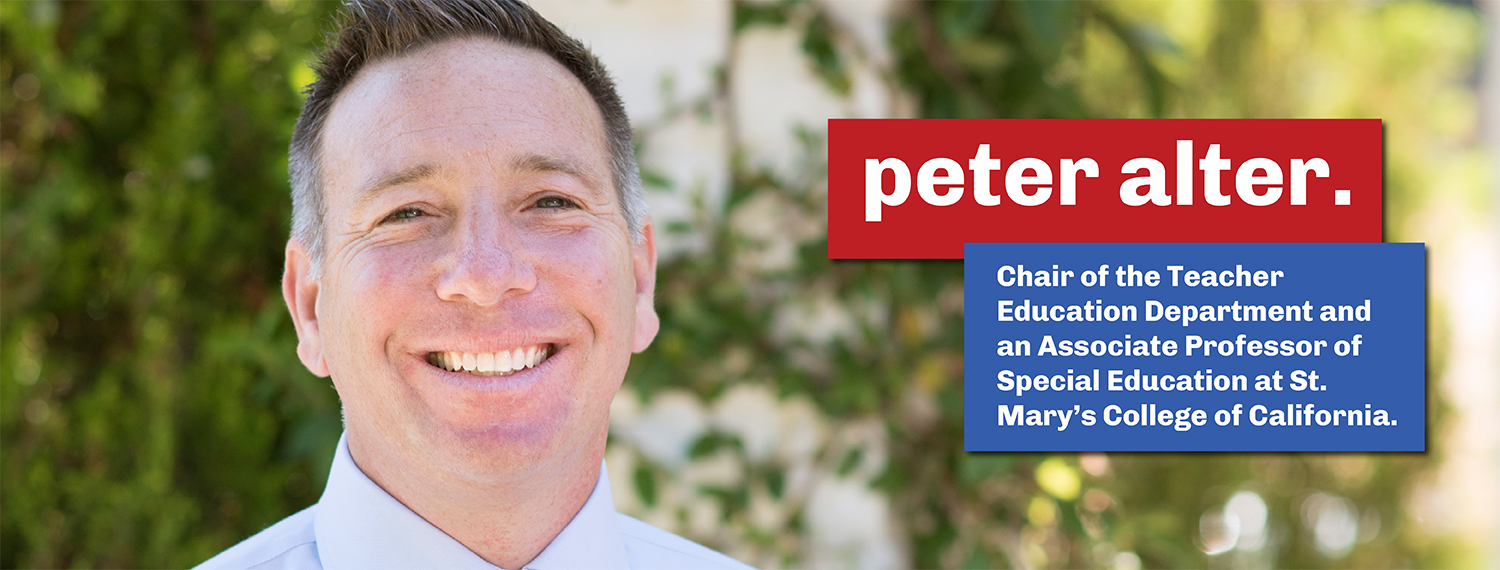

Peter Alter is the Chair of the Teacher Education Department and an Associate Professor of Special Education at St. Mary’s College of California. Peter taught students with emotional and behavioral disorders for six years in Jacksonville, Fl. He received his doctorate from the University of Florida and his key areas of interest are effective classroom and behavior management, Positive Behavior Interventions and Supports (PBIS), and data-based decision making. He is currently co-leading an $8 million dollar federally funded project examining the implementation of a multi-tiered behavior intervention package for students with or at risk of being identified with an emotional disturbance. He has 25 peer-reviewed publications including a co-authored textbook Managing Classroom Behavior Using Positive Behavior Support. He was the co-editor of Beyond Behavior, the practitioner journal of the Council for Children with Behavior Disorders from 2010-2013. In addition, Peter has made over 40 research presentations at state and national conferences and he has conducted over 90 teacher-training workshops nationally and internationally.
Changing Mindsets: Four Key Questions for Implementing Multi-Tiered Systems of Support
Implementing new initiatives in schools is challenging. School leaders must ask and answer critical questions about their schools- is this initiative worthwhile? Do we have the capacity to implement a new initiative and implement it well? What is a realistic timeline for implementation? To further the complexity, education leaders are barraged with ‘the new,’ ‘the shiny’, or ‘the silver bullet’ to cure all of their schools’ needs. But what if the new initiative stepped back from any individual intervention and considered how the school functions as a whole? Multi-Tiered Systems of Support (MTSS) are designed to evaluate current practices, determine the need for new practices and keep what works and discard what does not. This decision-making process makes meeting the needs of all learners the number one priority. It moves schools and school systems from a binary perspective of ability versus disability to a continuum of supports that categorizes students by their particular needs to be successful. Educational leaders will be guided through successful implementation of MTSS using these four questions:
- What are predictable difficulties?
- What interventions can we use to prevent these predictable difficulties?
- How will these interventions be implemented consistently and with fidelity?
- How will we know if the interventions are working?
This process gives a voice to all stakeholders through a team-based approach, uses proactive, prevention-based strategies, creates a common language and vision of success and most importantly focuses on meeting the needs of all learners.